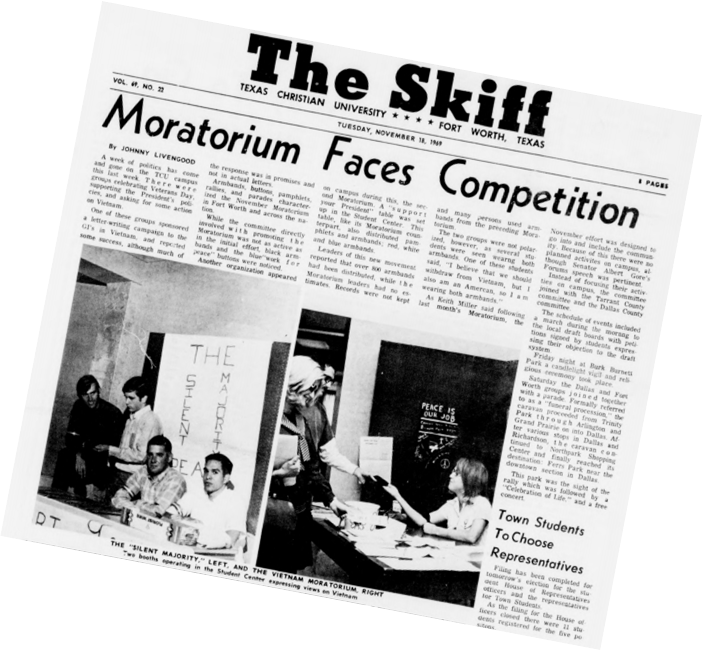
A Nation and a Campus, Divided
U.S. military interventions in Vietnam, and the drafting of over six hundred thousand Americans, divided the country and led to a tumultuous era that which resonated on TCU’s campus. TCU students, alumni, and faculty served in Vietnam. Some earned prestigious honors, like Colonel John V. Swango, professor of military science, who was awarded the Bronze Star. Others were killed in action, including the five TCU alumni killed in Vietnam in 1967. While the majority of TCU’s population supported U.S. involvement in the Vietnam War, pockets of protest and resistance appeared throughout campus. In 1967, TCU students started a chapter of the Students for a Democratic Society (SDS) and founded a group called Students for Peace. Students also gathered to mourn those who had been killed and advocate for peace as part of the national Moratorium to End the War in Vietnam. On April 30, 1975, with the fall of Saigon, the Vietnam War ended and TCU, after adding more names to its Veterans’ Memorial, slipped back into normalcy.
Bob Schieffer and the Texan Experience in the Vietnam War
Bob Schieffer earned his Bachelor of Arts in Journalism at TCU and went on to become a reporter for the Fort Worth Star Telegram, where he covered front line news of Texan troops in the Vietnam War.
A Frog in the Jungle
Captain Charles Perry Hood, Jr. was a TCU student, Artillery Officer, and helicopter pilot, who gave the ultimate sacrifice for his country in the jungles of Vietnam.
Music and the Vietnam War
Performances by rock and folk musicians, as well as radio music playing on and around the TCU campus, influenced students’ conduct and attitudes regarding the Vietnam conflict.
TCU’s Vietnam Anti-War Adaptation
During the Vietnam War, TCU students mirrored the nation’s attitudes as the antiwar movement grew and expanded over the course of the war.